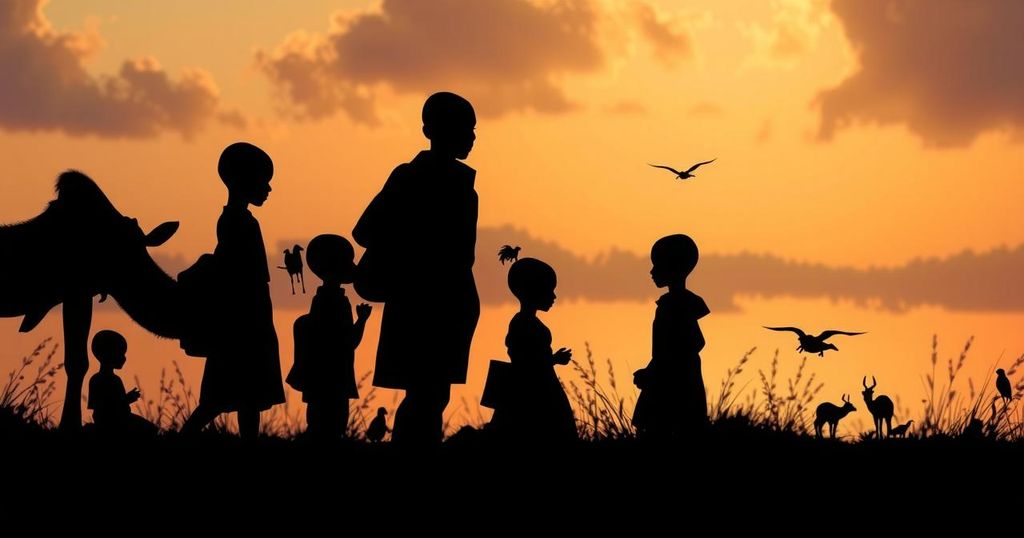The Plight of Sudanese Children Amidst Atrocities

Nicholas Kristof’s recent column reveals the harrowing experiences of Sudanese children amidst ongoing violence perpetrated by the Rapid Support Forces. The article critiques global leadership’s inaction, particularly regarding the United Arab Emirates’ support for the RSF, while highlighting the poignant story of an orphaned child, Safaa Khatir, whose life has been irrevocably altered by this conflict.
In an alarming report from the Chad-Sudan border, Nicholas Kristof sheds light on the dire circumstances faced by Sudanese children amid ongoing atrocities committed by the Rapid Support Forces (RSF). As these brutal militia members intensify their attacks in the city of El Fasher, and with the looming threat to nearby civilian camps, the plight of innocent lives becomes increasingly precarious. During his visit, Kristof was struck by the inaction of global leaders, notably the recent praises bestowed by President Biden on the United Arab Emirates, a key ally supporting the RSF. This inattention to the escalating genocide, recognized by international watchdogs, starkly contrasts with the inherent moral urgency felt by individuals directly affected by the conflict. One poignant story highlighted in Kristof’s column is that of Safaa Khatir, a young orphan whose life was turned upside down by the violence that erupted in Sudan due to fights between the RSF and the Sudanese Armed Forces. Following the destruction of her village and the loss of her family, Safaa embodies the suffering and resilience observed in many children facing such insurmountable hardships.
The ongoing civil war in Sudan, which began in 2021, has precipitated a humanitarian crisis characterized by mass atrocities, including ethnic cleansing and systematic violence against civilian populations. The Rapid Support Forces, formed from the Janjaweed militias, have been particularly notorious for their brutal tactics in suppressing dissent and targeting Black African ethnic groups. The international community’s response has been criticized for its inadequacy, as countries still engage diplomatically with regimes that facilitate or overlook such human rights violations.
In summary, Nicholas Kristof’s report underscores the critical need for global leadership and accountability in the face of heinous human rights abuses in Sudan. The juxtaposition of political indifference and the profound courage displayed by those like Safaa Khatir highlights the imperative for increased awareness, advocacy, and tangible action to combat the ongoing atrocities affecting millions. It is a stark reminder of our collective responsibility to protect the vulnerable and respond to cries for justice with urgency and commitment.
Original Source: www.nytimes.com








